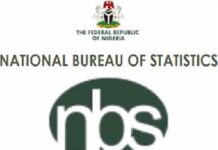
Why CBN Issues Guidelines For Open Banking In Nigeria
The Central Bank of Nigeria has issued a regulatory framework for Open Banking in Nigeria as an effort to enhance financial services through data sharing across the banking payment systems.
In a circular titled, ‘Operational guidelines for open banking in Nigeria’, published on its website, the CBN stated that the move would promote innovations and broaden the range of financial products and services available to bank customers
According to the CBN, the Regulatory Framework for Open Banking in Nigeria established principles for data sharing across the banking and payments system, to promote innovations and broaden the range of financial products and services available to bank customers.
Also Read: ABP: CBN Raises Concern On Non-Payment Of Loans by Farmers
Read Also:
Open banking is a banking practice in which third-party financial service providers are given open access to customer banking, transaction and other financial data from banks and non-bank financial institutions via application programming interfaces (APIs).
The apex bank state that “Open banking recognises the ownership and control of data by customers of financial and non-financial services, and their right to grant authorisations to service providers, to access innovative financial products and services. This is anticipated to drive competition and improve access to banking and payments services”.
It added that, “Participants in open banking shall adhere strictly to security standards when accessing and storing data, and shall be subject to minimum privacy standards, operational standards, risk management standards and customer experience standards as prescribed by the Bank.”
As a further point of clarification, the Bank stated that any organisation with customer data that can be exchanged with other entities in order to provide innovative financial services within Nigeria is eligible to participate in the Open Banking ecosystem.


































